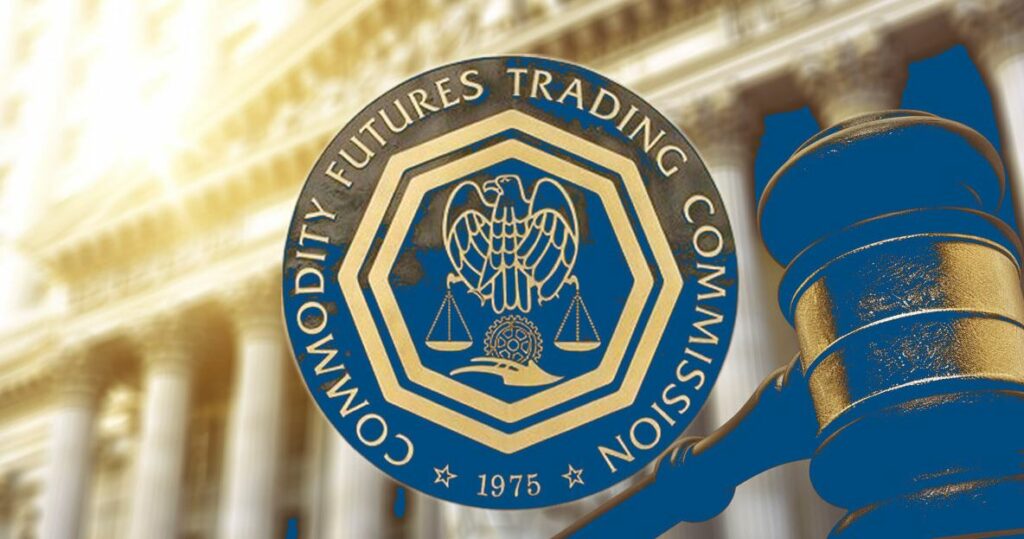
The U.S. Commodity Futures Trading Commission (CFTC) may be close to greenlighting crypto perpetual futures for trading in the U.S., according to statements from outgoing Commissioner Summer Mersinger. This development comes amid a major shake-up in the agency’s leadership, raising questions about the future of crypto regulation in the United States.

A Turning Point for the CFTC and the Crypto Industry
On Thursday, May 23, Commissioner Mersinger told Bloomberg TV that the CFTC is seeing new applications for crypto perpetual futures products and expects some of them to be approved soon.
“I think those can come to market now, and we’re seeing some applications, and I believe we’ll have some of those products trading live very soon,” she said during the interview.
Mersinger emphasized that the new offerings could have broad benefits. “These products will be really beneficial to the crypto industry broadly and to our economy here in the United States,” she added.
The remarks signal a potentially historic shift. Perpetual futures, often called “perps,” are financial contracts that allow traders to speculate on the future price of digital assets like Bitcoin or XRP without any expiry date. These instruments are especially popular because they enable 24/7 trading with leverage, which could significantly boost U.S. market liquidity.
Understanding Perpetual Futures
Perpetual futures differ from traditional futures contracts in that they don’t have a fixed settlement date. Instead, they rely on a funding rate mechanism that keeps the contract price close to the spot market price.
These products are already widely used on offshore exchanges like Binance and Bybit. Bringing them under U.S. regulatory oversight could make trading safer and more accessible for domestic investors. However, critics argue that the leveraged nature of perpetual futures also increases risk, especially for inexperienced traders.
Mersinger’s Exit and a Wave of Resignations
Commissioner Mersinger’s comments come just ahead of her exit from the CFTC. She is set to lead the Blockchain Association, a prominent crypto lobbying group based in Washington, D.C. Her move underscores a growing trend of regulators shifting into roles within the industry they once oversaw.
But Mersinger is not leaving alone. Three other CFTC commissioners are also planning to step down. Republican Caroline Pham and Democrats Christy Goldsmith Romero and Kristin Johnson have all signaled their intentions to leave the agency soon.
These exits are creating uncertainty about the future of crypto policy at the CFTC. If all four commissioners step down around the same time, the agency will be left nearly empty at the top.
Brian Quintenz Set to Lead
The only commissioner likely to remain in the near term is Brian Quintenz, a known pro-crypto advocate who was appointed by President Trump. Quintenz previously served at the CFTC from 2017 to 2021 and has since played a key role in advancing digital asset regulation.
He is currently awaiting Senate confirmation to return to the Commission. If approved, Quintenz could become the main voice guiding crypto policy at the agency.
With just one commissioner in place, however, the CFTC may face serious delays in rulemaking and enforcement. This could slow down progress on key initiatives, including the approval of new digital asset products and inter-agency coordination.
Pressure Mounts on the Senate
According to a blog post published Thursday by U.S. law firm Paul Hastings, the lack of commissioners could hinder the CFTC’s effectiveness.
“The reduced number of commissioners could delay enforcement actions, rulemaking activity, and coordination with other financial regulators,” the firm wrote. “This increases pressure on the Senate to expedite the confirmation process.”
Industry participants are also calling for quick action. Many believe that having a functioning, crypto-aware regulatory body is critical as the U.S. faces growing competition from jurisdictions like the U.K., Hong Kong, and the UAE.
What This Means for the Crypto Industry
The possible approval of crypto perpetual futures is a major moment for the U.S. crypto industry. While these products already thrive on offshore platforms, allowing them under regulated U.S. markets could legitimize crypto derivatives and increase investor confidence.
This move could also bring more institutional players into the space. Institutional investors typically require regulatory clarity before committing serious capital, and the launch of regulated perps could be that green light.
But it’s not all good news. With so many commissioners leaving, there’s concern about a potential leadership vacuum at the CFTC. The lack of experienced regulators could delay other important crypto-related rules, including those related to custody, spot market surveillance, and stablecoins.
Looking Ahead
The next few months will be critical for the future of crypto derivatives in the U.S. If the CFTC successfully approves perpetual futures, it will mark a significant step toward the normalization of digital asset trading under U.S. law.
However, without a full slate of commissioners, the agency may struggle to build on this progress. Much depends on how quickly the Senate moves to confirm new leadership, and whether Brian Quintenz can steer the CFTC through a challenging transitional period.
Despite political turnover and regulatory uncertainty, the U.S. crypto industry could be on the verge of a breakthrough. If crypto perpetual futures products are approved soon, it may usher in a new era of advanced trading and institutional engagement.
But the timing is delicate. Leadership gaps at the CFTC could delay broader reforms, and the Senate must now act swiftly to restore the Commission’s decision-making power.
For now, the crypto world watches and waits, hopeful that long-awaited clarity and innovation are just around the corner.























